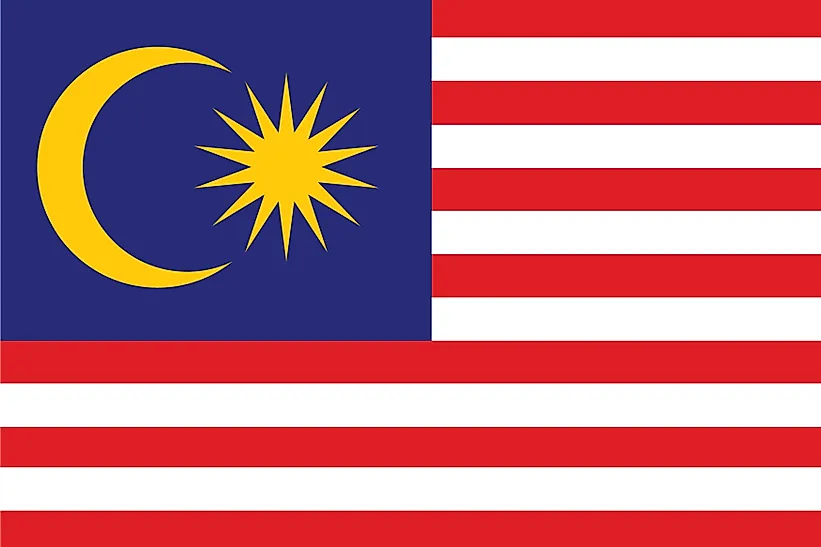
Malaysia
| Continent | Asia |
| Capital | Kuala Lumpur |
| Population | 30,949,962 |
| GDP | $863.00 Billion |
| GDP per Capita | $27,200 |
| Dialing Code | +60 |
| ISO Code (2-letter) | MY |
| ISO Code (3-letter) | MYS |
Malaysia Landscapes






About Malaysia
Welcome to Malaysia, a nation where diverse cultures create a unique harmony. With approximately 32.7 million people occupying 330,803 square kilometers, Malaysia combines remarkable cultural diversity with modern development, exemplifying its tourism slogan “Malaysia, Truly Asia” through its blend of Malay, Chinese, Indian, and indigenous influences.
Geographic Features and Natural Beauty
Malaysia’s geography spans two distinct regions: Peninsular Malaysia and East Malaysia (on Borneo), separated by the South China Sea. The country features diverse landscapes from tropical rainforests to mountain ranges, with extensive coastlines along both peninsular and Bornean shores.
The landscape includes Mount Kinabalu, Southeast Asia’s highest peak at 4,095 meters, and some of the world’s oldest rainforests. The country’s varied topography supports extraordinary biodiversity, including numerous endemic species.
Protected areas include Taman Negara, one of the world’s oldest rainforests, and the Mulu National Park with its remarkable cave systems. The marine parks along both coastlines preserve coral reefs and marine ecosystems.
Cultural Heritage and Traditions
Malaysian culture represents a vibrant fusion of multiple ethnic traditions. The country’s heritage includes diverse religious practices, festivals, and customs, creating a unique multicultural tapestry that defines Malaysian identity.
Traditional arts include batik textile making, wayang kulit (shadow puppetry), and various forms of traditional music and dance. The country’s architectural heritage ranges from traditional Malay houses to Chinese shophouses and colonial buildings.
Malaysian cuisine is renowned worldwide, featuring dishes that blend various cultural influences. Food culture, from street hawkers to fine dining, plays a central role in Malaysian life and tourism.
Historical Journey
Malaysia’s history spans from ancient maritime kingdoms through colonial periods to modern nationhood. The strategic Strait of Malacca has shaped the country’s development as a trading hub and cultural melting pot.
Significant periods include the Malacca Sultanate, Portuguese and Dutch influence, British colonial rule, Japanese occupation during World War II, and independence in 1957. The formation of Malaysia in 1963, incorporating Sabah and Sarawak, marked a crucial point in the nation’s development.
Modern Economic Landscape
Today’s Malaysian economy is one of Southeast Asia’s most developed, combining manufacturing strength with growing service sectors. The country has successfully transformed from a commodity-based economy to a diverse, modern economy.
Recent initiatives focus on digital transformation, sustainable development, and advancing into high-technology industries. Malaysia’s strategic location and developed infrastructure support its position as a regional business hub.
International Relations and Global Position
Malaysia maintains active participation in ASEAN and various international organizations while promoting moderate Islam and South-South cooperation. The country’s multicultural experience contributes to its role in international dialogue.
Did You Know?
• Malaysia is home to the world’s oldest rainforest, Taman Negara, estimated to be 130 million years old?
• The Petronas Towers in Kuala Lumpur were the world’s tallest buildings from 1998 to 2004?
• Malaysia is one of the world’s largest producers of natural rubber and palm oil?
• The country includes the world’s largest flower, the Rafflesia, which can grow up to one meter in diameter?
Conclusion
Malaysia represents a unique success story of cultural harmony and economic development. From its ancient rainforests to its modern cities, from its traditional customs to its technological innovations, Malaysia continues to evolve while maintaining its distinctive multicultural identity. As it addresses challenges including sustainable development and economic advancement, Malaysia remains committed to its vision of unity in diversity while fostering regional leadership.